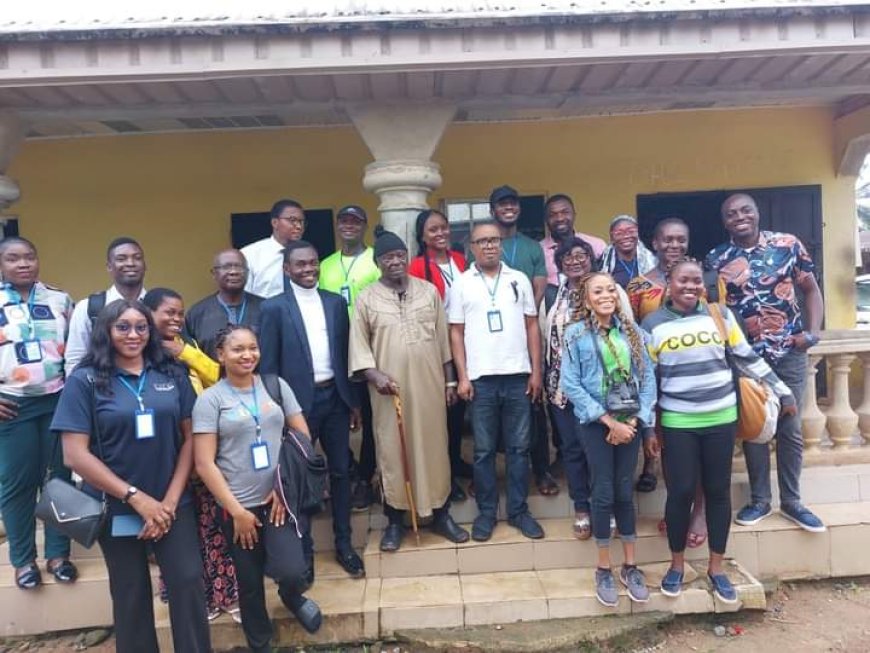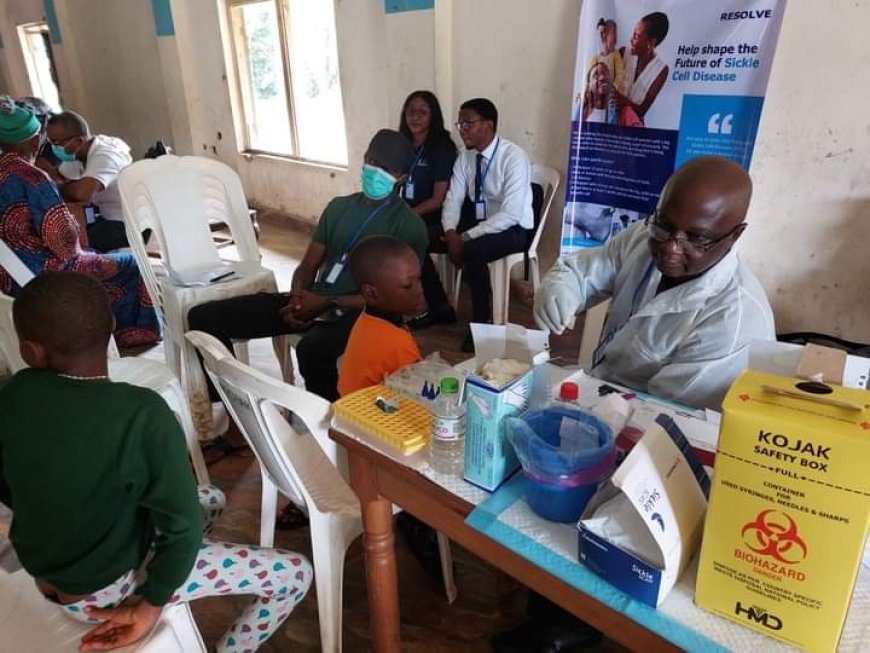Hematologist Harps On Genotype Compatibility As Panacea Against Sickle Cell Anaemia

Edem ITA
Intending couples have been implored to ensure genotype compatibility before tying the nuptial knob to avoid giving birth to children with sickle cell challenges.
A consultant hermatologist at the University of Calabar Teaching Hospital, Dr Ofonime Essien gave the advice during a one-day sensitisation campaign on sickle cell disorder held in Oban, Akamkpa Local Government of Cross River.
Dr Essien opined that since a permanent cure for sickle cell disease is still elusive, genotype compatibility before marriage which can be ascertained through medical test remain the best panacea against the disorder.
She enjoined parents, religious leaders, and other stakeholders to always enforce genotype tests as one of the criteria before joining couples in marriage and listed the symptoms of the disease to include severe pains, fatigue, and susceptibility to infections.
In her opening remarks, the founder of Calabar Sickle Cell Foundation, Deborah Ononokpono disclosed that the event was conceived as part of efforts to curtail the incidence of sickle cell disease which she noted thrived on the lack of information needed to checkmate the ratio by ensuring genotype compatibility.
According to Ononokpono, "Adequate information on sickle cell disease is of utmost necessity to erase erroneous conceptions which have complicated matters for those affected".
Speaking, the Village Head, of Oban, Chief Steven Mbe, expressed delight over the choice of Oban for the awareness campaign and commended the team for the humane gesture.
He noted that ignorance of the source of the challenge has been hindering efforts to explore viable medical remedies to ameliorate the pains associated with the crisis period.
Chief Mbe appealed to the organisers to repeat the programme in December when the majority of his subjects would be around for the yuletide to achieve maximum results.
Speaking, Mrs. Ezema Chisom Nnedinso of Pfizer Pharmaceuticals revealed that the outreach was part of the corporate social responsibility of the company intended to assist in addressing a major inherited health challenge.

According to her, "Pfizer is here on humanitarian assistance project which is a cardinal part of our corporate social responsibility. We believe adequate information on sickle cell disease will minimize proliferation given its incurable status, associated trauma, and high cost of handling cases".
The event featured the distribution of antibiotics and multivitamins to those with the SS genotype after a medical test carried out by a team from the University of Calabar Teaching Hospital, UCTH.
The outreach also featured tests for malaria parasites and free medications as well as counseling session for those with AS genotype.













































